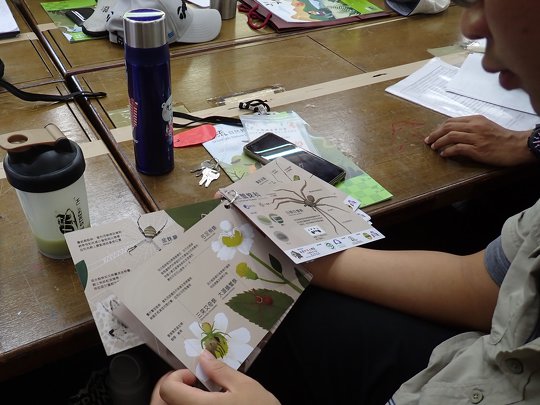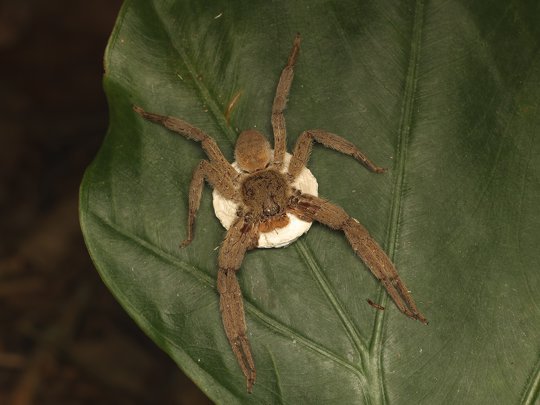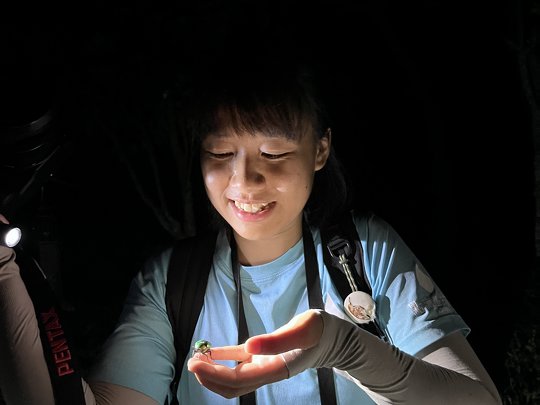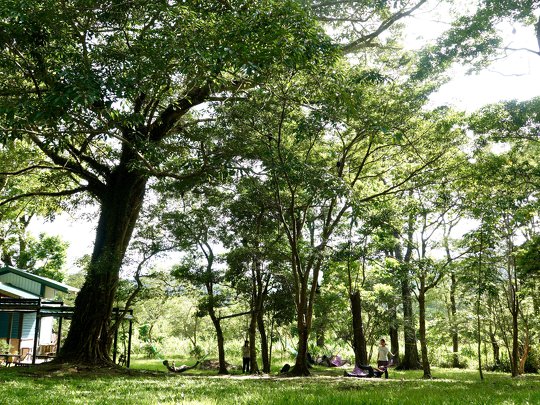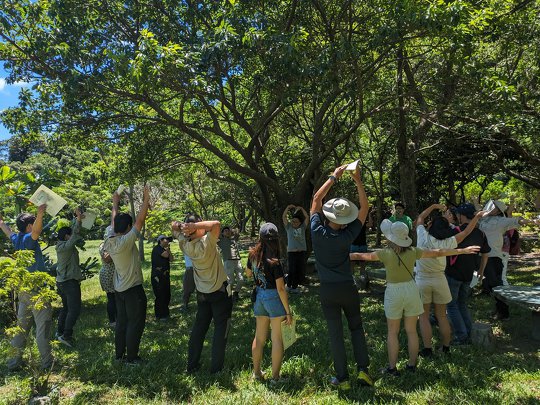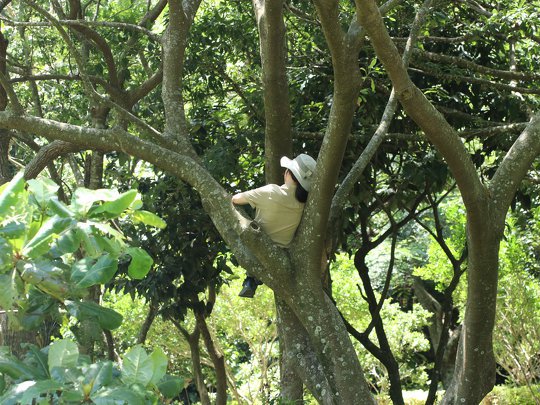Sharing by OWLHK team members
Bond Shum (Founder and Conservation Director)
I presented OWLHK’s past spider ecological education programme to environmental education practitioners in Taiwan, and distributed spider field guides for their reference. During the sharing, there were lots of praise from Taiwanese environmental educators saying “Wow! This is so pretty!” “I would like to have a copy as well!” “I did not expect such a great variety of spiders in Hong Kong!” I believe that participants trained and approached in the ‘Spider Survey Ecological Education Programme’ were the seeds that we had sowed. One day, when the time comes, they will sprout and grow, and help us to spread the message of spider ecological preservation.
The night before our sharing, we have participated in a night animal exploration under the guidance of the Shuangliu environmental education team. Apart from the popular amphibians and reptiles, our colleagues discovered a Heteropoda pingtungensis carrying an egg sac under its body. Without any screaming, we silently observed and praised its beauty with photo-taking. It seems that the “seeds” of preserving spiders have sprouted and grown even in our own team!
Ryann Tam (Project Officer)
Shuangliu environmental education team had guided us in river fieldwork studies and night safari. During the process, they naturally radiated a sense of ease. They were familiar with what they had to tell, but not expressing extensive knowledge of the topic in a rush. They felt comfortable in the neighboring environment, and were very willing to guide us in exploring our surroundings repetitively. Initially, our walking speed was slightly different, but the team enabled us to follow our own pace and explore the environment freely. From time to time, the team would gently remind us about the time. I believe that such attitude was shaped not only because of their professionalism, but also due to their relaxing living style.
Hong Kong people work efficiently, and it seems that everyone is multi-tasking. It is very common that participants expect to learn and do the most things within the least time. No doubt event planners have to live up to their expectations, and try their best to arrange a packed event schedule. Nevertheless, efficient learning requires “negative spaces”. With more time and space, participants could learn to listen to their own breath and sounds from the surroundings, and to sense the smell of the forest. Indeed, genuine sensory experience is also a vital source of knowledge, which may be better in shaping one’s character.
Hugo Du (Project Manager)
While demonstrating our “Forest Exploration Logbook”, we have picked two exercises to encourage the group to explore and observe their surroundings in a different way. The first exercise was to carefully observe a natural object, for instance, a crawling insect, a falling wilted leaf, a piece of grass blown by the wind... The second exercise was to sense the changes of our surroundings. After finding a comfortable outdoor spot, we closed our eyes and… did nothing. Some climbed up to a tree, some sat under the shades, and some silently stood beside a river… In this moment, I felt the urge to touch the ground with my hands, experience the heat of the sun, listen to the sound of the wind, observe the lives of small insects, and feel the gifts bestowed by the Mother Nature.
Some Taiwanese friends found this activity novel, and it created a perfect ending to the morning session. Knowledge pursuit is not the only way to understand nature: Using our fundamental body senses, or expressing our sense of belonging towards a place, are also deemed as ways of connecting with nature.
